|

Inspired Vision
Mendelssohn's 'Elijah',
reviewed by LAWRENCE BUDMEN
Felix Mendelssohn may be the most underrated of 19th century composers from the German romantic tradition. Such terms as 'lightweight' and 'facile' are too easily applied to this creative master by over zealous writers and historians. Mendelssohn was second only to Mozart as a prodigious wunderkind. While still a teenager, he conceived the brilliantly inventive twelve string symphonies, the masterful Octet and indelibly effervescent Overture to A Midsummer Night's Dream. In a mere 38 years of life, what composer (other than Mozart) created such a large and consistently distinguished body of work?
Composing was almost an avocation for Mendelssohn. One of the most important conductors of his day, Mendelssohn championed the orchestral works of Robert Schumann, Hector Berlioz and Niels Gade. As director of the Leipzig Gewandhaus Orchestra, he led the posthumous première of Schubert's Great C Major Symphony (No 9). One of Mendelssohn's greatest triumphs was his revival of J S Bach's St Matthew Passion, a historic event that played a major role in the reappraisal of that composer's output. He also conducted the oratorios of Handel. His reverence for the large scale sacred compositions of those two masters found expression in Mendelssohn's own oratorios St Paul and Elijah.
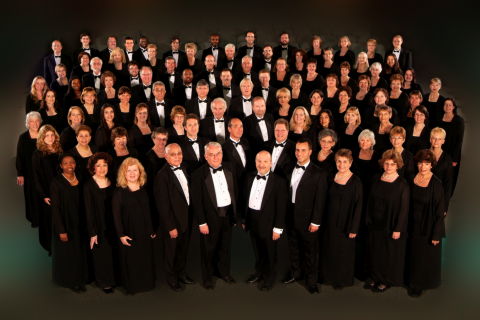
The Master Chorale of South Florida. Photo © 2007 Wade Caldwell
|
Composed in 1846 on commission from the Birmingham Festival, Elijah received its première on 26 August 1846 with the composer conducting. (Mendelssohn was highly popular in England and visited there ten times during his lifetime.) Elijah displays Mendelssohn's mastery of craft and formal rigor, fusing the conventions of Baroque oratorio with the dramatic expressivity of the romantic movement. The Master Chorale of South Florida presented a rare American performance of this masterwork on 16 November 2008 at the auditorium of Pine Crest School in Boca Raton, Florida, USA. (Performances in Pompano Beach and Miami were given on the previous two evenings.)
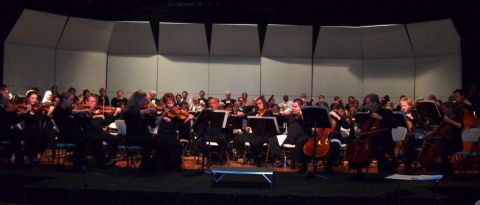
The Boca Raton Symphonia
|
Elijah is one of the great works of the choral literature. Mendelssohn conjures up a sense of Old Testament drama combined with his trademark quicksilver lyricism. Elijah's aria It is enough! has the gravity of Bach and the pathos of Schubert at his most inspired. The a cappella trio Lift thine eyes is a divine creation of stunning originality and the chorus He watching over Israel is one of the composer's most serene melodies. Mendelssohn's final stroke of genius transforms the hymn of thanks And then shall your light break forth into a heroic fugue, at once paying tribute to his Baroque predecessors and reaching the realm of Brahmsian nobility. Mendelssohn's masterful orchestration utilizes the instrumental choirs to stunning pictorial effect.
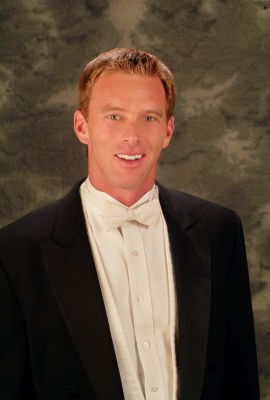
Joshua Habermann. Photo © 2008 Wade Caldwell
|
Making his début as artistic director of the Master Chorale, Joshua Habermann led an eloquent performance of one of Mendelssohn's greatest works. The new Director of Choral Studies at the University of Miami, Dr Habermann was previously Director of Choral Activities at San Francisco State University and assistant conductor of the San Francisco Symphony Chorus (for Michael Tilson Thomas). Eschewing podium flamboyance, Habermann drew superb choral singing from his more than a hundred voice forces, coaxing the most exquisite soft vocal effects and full throated choral perorations of powerful dramatic reverberation. His sense of structural mastery splendidly traced the high drama, lyrical interludes and stirring reverence at the heart of Mendelssohn's divine creation. (The choral trio on Lift thine eyes -- Kristen DiNonno, Emily Furhmann and Sophia Beharrie -- approached the angelic.) Habermann beautifully shaped Mendelssohn's numerous instrumental felicities, never losing sight of the oratorio's grand line. The Boca Raton Symphonia essayed the score with assurance; string and wind articulation was particularly strong and precise. Habermann ignited the heavenly beauty at the heart of this great work -- a very impressive début!
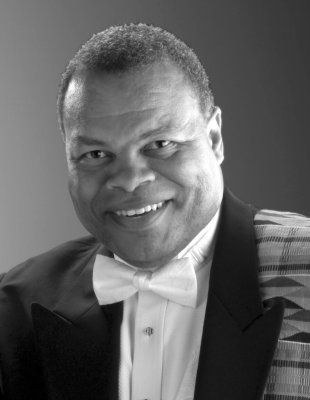
Donnie Ray Albert
|
Donnie Ray Albert dominated the performance as Elijah, unfurling a commanding bass baritone of awesome power. His subtly nuanced performance gave equal weight to the Prophet's fiery pronouncements and deep humanity. Albert's command of legato line and deep emotional intensity in the arias It is enough and I go on my way was deeply moving. With a voice of booming power and dramatic depth, Albert's Elijah was appropriately larger than life.
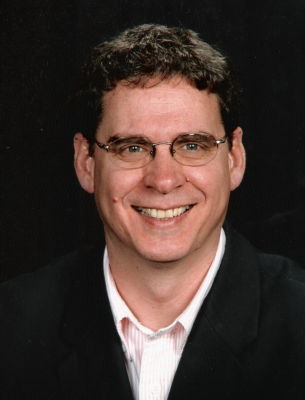
Glenn Siebert
|
As Obadiah, Glenn Siebert deployed his dulcet lyric tenor with Mozartean nobility in Thou shall the righteous shine. The warmth, graceful musicality and elegance of Hannah Sharene Penn's mezzo-soprano embraced Mendelssohn's flights of quicksilver lyricism.
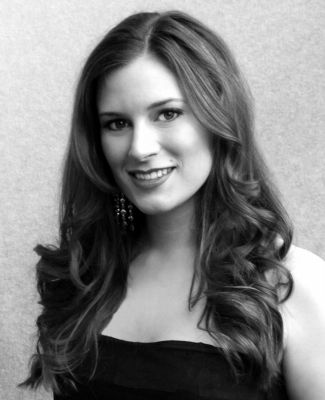
Hannah Sharene Penn
|
In the soprano aria Hear Ye, Israel, originally conceived for Jenny Lind, Angela Cadelago dazzled with effortless coloratura runs. Boy soprano Alejandro Pichardo essayed the child's lines with aplomb.
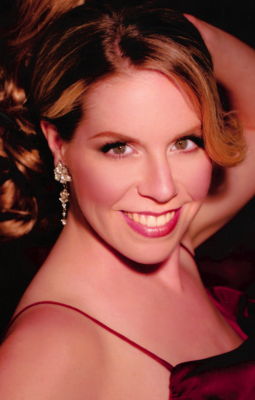
Angela Cadelago
|
The vibrant, warmly burnished acoustics of the Pine Crest auditorium allowed every vocal and instrumental detail to register clearly. This wonderful realization of one of the great choral masterworks was a milestone for the Master Chorale. With a splendid choral director, dedicated instrumental and choral forces and a distinguished solo contingent, this performance of Elijah did full artistic justice to Mendelssohn's inspired vision.
Copyright © 22 November 2008
Lawrence Budmen, Miami Beach, USA

| 
